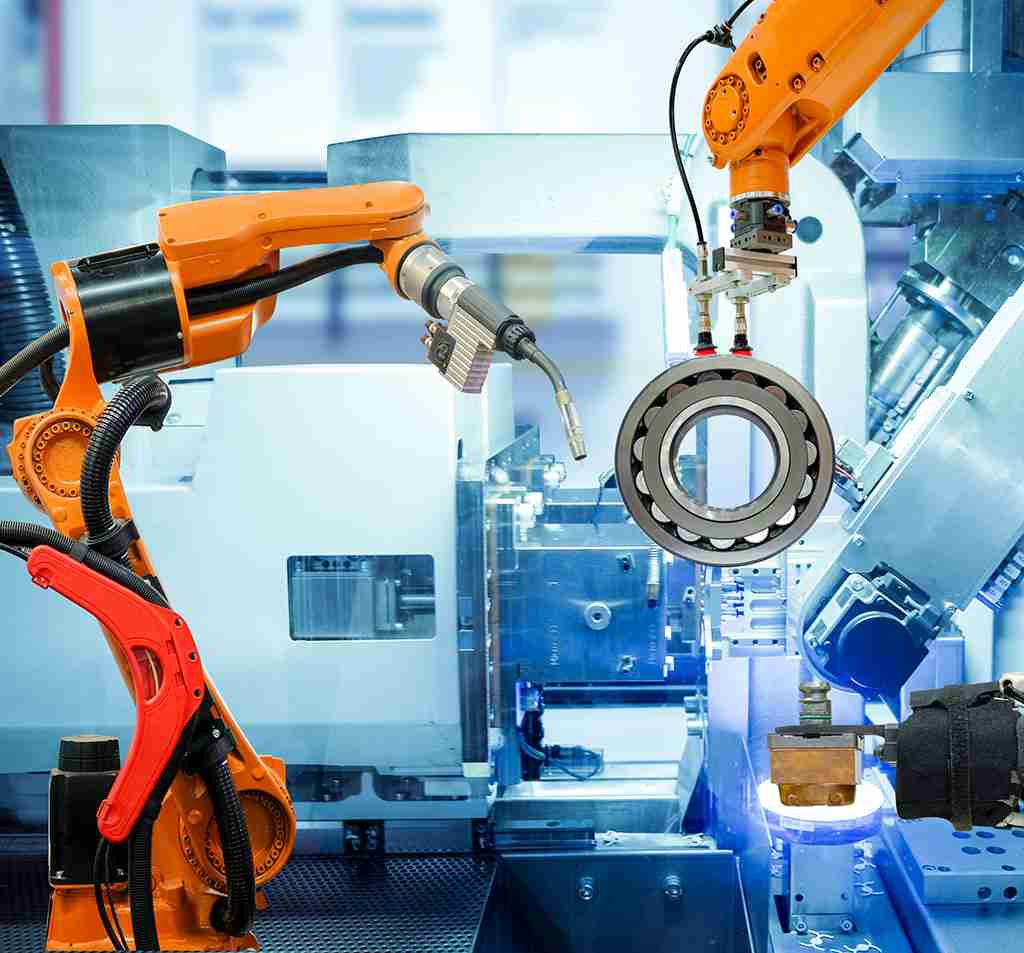In a world where technology reigns supreme, manufacturing is no exception to the digital revolution. Enter Industry 4.0 and the era of Smart Manufacturing—a dazzling realm where machines talk to each other, production lines anticipate needs, and efficiency reaches new heights. Buckle up, because this blog is your passport to the future of manufacturing!
Industry 4.0: The Revolution Unveiled
Industry 4.0, also known as the Fourth Industrial Revolution, isn’t just an upgrade; it’s a complete transformation. Picture this: your factory floor humming with interconnected machines, each one sharing real-time data. It’s like the Internet of Things (IoT) on steroids, and it’s changing the game.
The Building Blocks of Smart Manufacturing
At the heart of Industry 4.0 are several groundbreaking technologies, each playing a pivotal role in creating smart manufacturing ecosystems:

Internet of Things (IoT)
IoT is the glue that holds it all together. Machines, sensors, and devices are equipped with IoT technology, allowing them to collect and transmit data. Think of it as your machines becoming chatterboxes, sharing insights about their performance, maintenance needs, and efficiency.
Artificial Intelligence (AI)
algorithms analyse the data generated by IoT devices, spotting patterns and anomalies. This means predictive maintenance, optimised processes, and smarter decision-making.
Robotics and Automation
Robots are more than just mechanical arms; they’re co-workers. Collaborative robots, or robots, work side by side with humans, boosting efficiency and safety. Fully automated production lines, guided by AI, ensure precision and consistency.
Robotics and Automation
Data is the new gold. With Industry 4.0, you’re swimming in it. Advanced analytics turn mountains of data into actionable insights. It’s like having a crystal ball for production forecasting and quality control.
Cloud Computing
Cloud-based platforms serve as the central hub for data storage and analysis. This means you can access your manufacturing insights from anywhere, at any time, ensuring a global view of your operations.
Cybersecurity
With all this digital wizardry, security is paramount. Robust cybersecurity measures protect your data from cyber threats, ensuring that your smart factory remains a fortress against hackers.
The Perks of Smart Manufacturing
So, what’s the big deal with all these interconnected machines and data-sharing? The perks are nothing short of revolutionary:
Predictive Maintenance
No more waiting for machines to break down. Smart manufacturing anticipates maintenance needs, reducing downtime and saving on repair costs.
Increased Efficiency
Optimised processes and automated workflows mean that you’re producing more with less. Efficiency soars, reducing waste and resource consumption.
Quality Control
With AI-driven quality control, defects are detected and corrected in real-time. Your products leave the factory in top-notch condition, improving customer satisfaction.
Customisation at Scale
Smart manufacturing allows for mass customisation. Tailor products to individual customer needs without sacrificing production speed or efficiency.
Sustainability
Efficiency and waste reduction go hand in hand with sustainability. Smart manufacturing is greener, consuming fewer resources and producing less waste.
Cost Savings
Efficiency improvements, reduced downtime, and better resource allocation lead to significant cost savings over time.
Challenges and Considerations
Of course, with great power comes great responsibility. Smart manufacturing is not without its challenges:
Cost of Implementation
The initial investment can be substantial. However, the long-term benefits often outweigh the upfront costs.
Workforce Transformation
Employees need training to adapt to modern technologies. The workforce of tomorrow is tech-savvy and data-driven.
Data Security
With all the data being generated and shared, robust cybersecurity measures are essential to protect against potential threats.
Compatibility
Ensuring that existing systems and equipment can be integrated into the smart manufacturing ecosystem can be a complex task.
The Future is Yours
The age of Smart Manufacturing is upon us, and it’s not a distant dream—it’s happening right now. The question is, are you ready to embrace it? The benefits are clear: increased efficiency, reduced costs, improved quality, and a path towards sustainability. It’s not just a technological shift; it’s a mindset shift—a commitment to continuous improvement and innovation.
Conclusion
So, whether you’re a manufacturer looking to stay ahead of the curve or simply curious about the future of industry, keep your eyes on Industry 4.0 and Smart Manufacturing. It’s not just a trend; it’s a revolution—one that’s reshaping the manufacturing landscape and defining the factories of tomorrow. Welcome to the future; it’s a smarter, more connected, and incredibly exciting place to be!
Feel free to check out some of our other linked blogs below. If you would like any more information, our trusted consultants are on hand to answer any questions, simply fill out the Contact Us form below.




